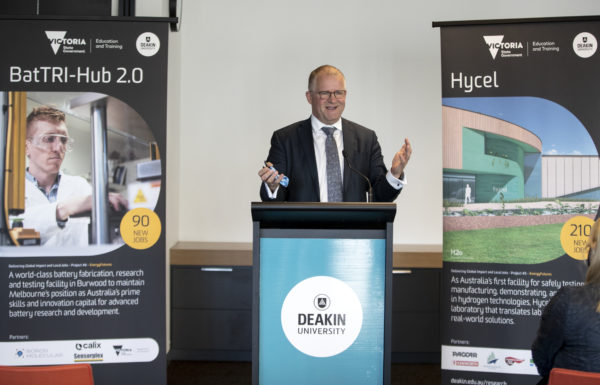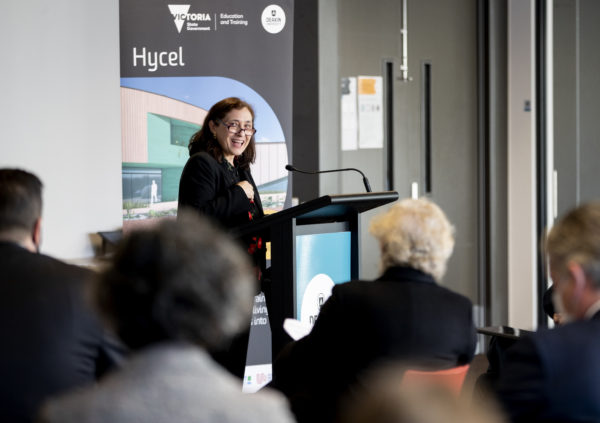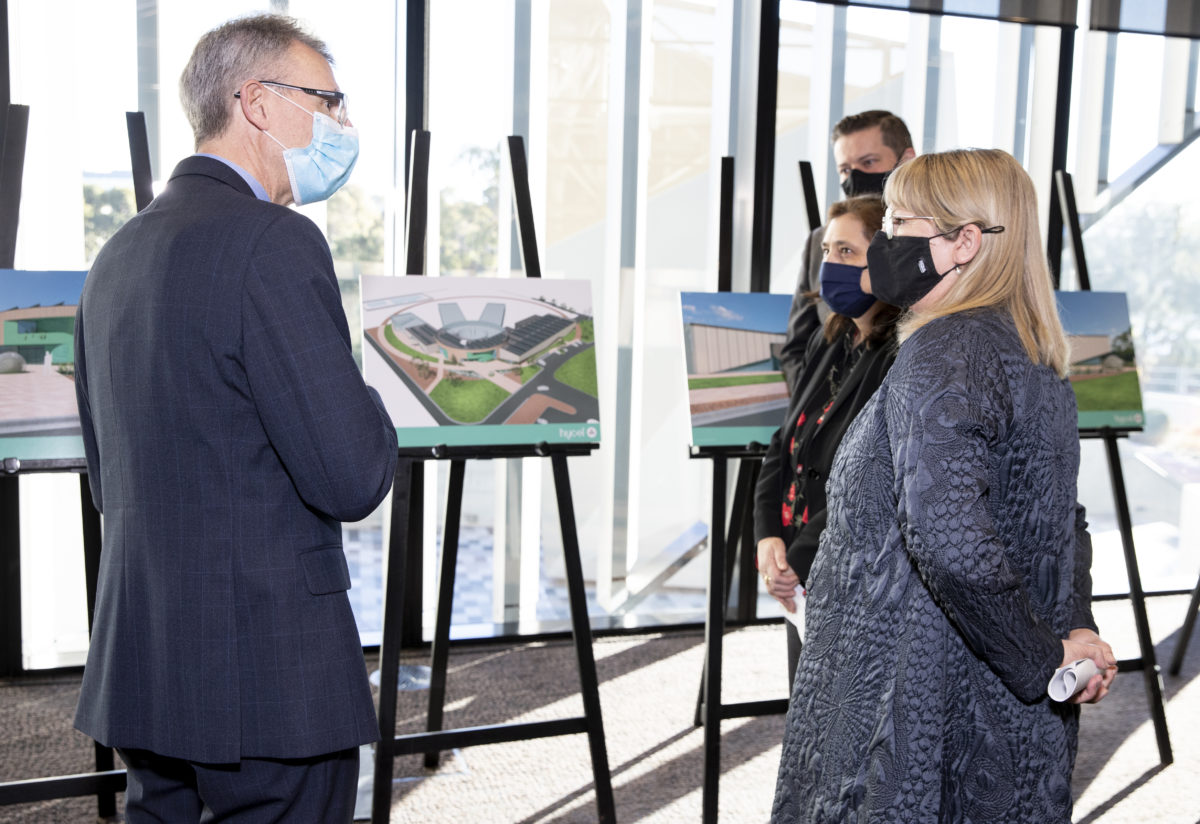Victoria’s Deakin University has received over $14 million in funding from the state’s government which will go towards its Battery Technology Research and Innovation Hub 2.0 as well its its Hycel Technology Hub.
The projects will focus on partnership between community, industry, research and governments with “thoughtful investment” in people and infrastructure, Director of Deakin’s Energy Initiative, Dr Adrian Panow said.
“Of particular note is the recognition that social licence and training are essential if adoption of new technologies is to be efficient and to ensure that benefits of the transition flow across the breadth of the community,” Panow wrote on LinkedIn.

Deakin University
Hycel Technology Hub
Of the state government’s funding, the lion’s share at $9 million will go towards Deakin’s hydrogen Hycel hub. The facility, a factory of sorts, will be devoted to the development, testing, training, demonstration and manufacture of hydrogen fuel technology at scale. It will be constructed on Deakin’s Warrnambool campus, on the coast in Victoria’s west – a region slated to become one of Australia’s future regional hydrogen hubs as part of the National Hydrogen Strategy. The federal government has also committed $2 million to Deakin’s Hycel project.
The new facility, for which construction is set to begin in December with completion expected by December 2022, will include a fuel cell wing with specialised fuel cell assembly and testing equipment, plumbed with hydrogen.
A particular focus will be on how hydrogen can be used in hard to abate sectors like transport, heavy vehicles and industry. In line with that goal, Deakin is partnering with Warrnambool Bus Lines to develop an optimisation model for hydrogen refuelling logistics, which supports a plan to transition buses from diesel to hydrogen.
Alongside the technology component, the facility is also intended to develop an education pipeline.
“Importantly, it’ll be a facility that will interface directly with communities, and particularly regional communities, to build that social licence so that when hydrogen becomes a viable large scale economy that the community is ready to accept it and we have a trained workforce that knows how to implement safely,” Panow told the ABC.
Partnering with South West TAFE, Deakin’s Hycel will connect industry to higher education institutions to prepare workers for the future industry. The design of the Hycel education programs are set to get underway later this year.
“These projects will create world-class training and research facilities right here in Victoria – with huge benefits not just on skills and training but also industry and our economy,” Victoria’s Minister for Higher Education, Gayle Tierney, said at the project’s launch yesterday.

Deakin University
Battery Technology Research and Innovation Hub 2.0
The second project being supported is Deakin’s Battery Technology Research and Innovation Hub 2.0, with the somewhat unfortunate acronym BatTRI-HUB 2.0. This facility is set to be built at the university’s Burwood campus in Melbourne city.
The “technology research and translation facility” will specialise in advanced battery design, fabrication and testing. It will include a pilot production line to manufacture advanced batteries and battery components, an expansion of existing pouch cell prototyping, a cell and pack testing lab, and advanced cell diagnostics and materials characterisation.
Deakin says the facility will seek to advance existing technologies such as lithium but will also focus on sustainable alternatives such as sodium batteries.
In the state government’s media release on the funding, it said the facility’s “products will be developed to meet bespoke requirements in defence, agriculture, disaster zones and health settings.”
Like the Hycel Hub, the BatTRI-HUB 2.0 will also have a focus on providing education, training and employment opportunities.
Construction to begin in January 2022 and to be completed by May 2022 – though research projects will begin sooner elsewhere on campus.
The Victorian government said the projects will accommodate 290 jobs in research, manufacturing and energy while the construction process will create about 78 local jobs.
This content is protected by copyright and may not be reused. If you want to cooperate with us and would like to reuse some of our content, please contact: editors@pv-magazine.com.









By submitting this form you agree to pv magazine using your data for the purposes of publishing your comment.
Your personal data will only be disclosed or otherwise transmitted to third parties for the purposes of spam filtering or if this is necessary for technical maintenance of the website. Any other transfer to third parties will not take place unless this is justified on the basis of applicable data protection regulations or if pv magazine is legally obliged to do so.
You may revoke this consent at any time with effect for the future, in which case your personal data will be deleted immediately. Otherwise, your data will be deleted if pv magazine has processed your request or the purpose of data storage is fulfilled.
Further information on data privacy can be found in our Data Protection Policy.